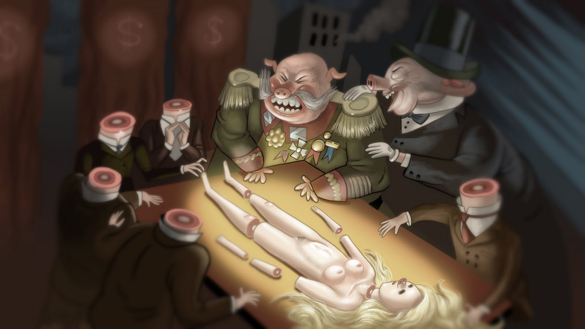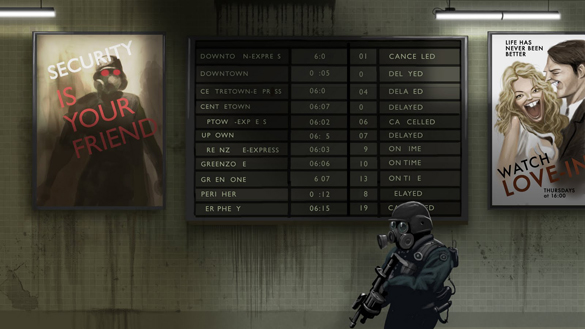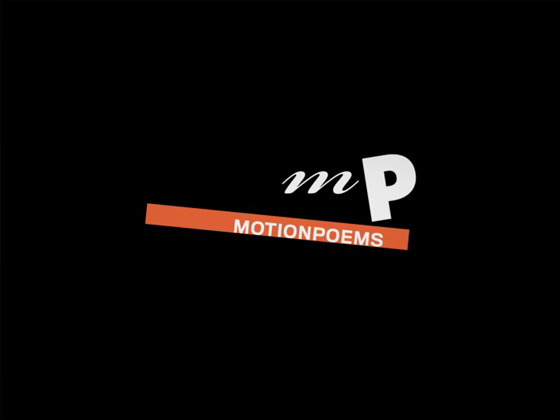In 2011, intelligent creator-driven animation is something of a rarity. More and more, what you see at the Cineplex these days is 3D animation aimed solely at children, rife with bathroom humor and pop culture references that are dated by the time the film hits DVD shelves. The days of creator-driven animation are fading faster and faster.
Thank God, then, for the World Wide Web. The Internet allows us to search out and discover all new kinds of animators and animation, both hand drawn and computer generated. One of these animators thriving on the Internet is Nick Cross, a Toronto based artist creating his own surreal animated short films and funding them through a grass roots campaign.
Nick sat down with Gadfly to discuss his roots in animation, his influences, and the messages in his work.
Could you first start off by telling us a little about not only what made you want to be an animator, but also how you then got started in the field?
Well, even though I’d always loved animation growing up, I never had any sort of ambition to become an animator. I actually studied to become an illustrator, but I found my way into animation since it was pretty difficult to break into illustration right out of college. How it happened was that my college friend Troy Little had moved to Ottawa and he managed to find work at a local animation studio because they were looking for artists with an illustration background for a project they were about to start. They asked him if he knew any other people looking for work, and he called me up.
I was working a dead-end job at the time and was pretty bummed out about my life, so when he called and asked if I wanted to work at an animation studio, I didn’t even have to think twice. I moved from Toronto to Ottawa a couple of weeks later. That was sixteen years ago, and I’ve been working steadily ever since.
There are strong political and social messages running through all of your short films, could you speak to that, seeing as it’s highly uncommon to find in animation, at least in this era?
I don’t knowingly set out to make films with a message. I’m pretty interested in politics and history so those tend to worm their way into the stories that I want to tell. Likewise, I don’t actively try to make films that are geared for a commercial audience. I just want to make films with stories that I personally enjoy.
I see an influence of John Kricfalusi in the animation and look of the characters in your short films. Is there truth to that, or is it a case of you both having similar influences? If not Kricfalusi, who are your main influences/inspirations?
I worked for John Kricfalusi for a few years, and as is the case with just about anyone that works for him, a lot of his approach to cartooning and animation rubbed off on me. He is one of the few people alive that really understands and is able to articulate real, solid cartoon principals as they apply to animation. Apart from John, I have a lot of varied influences, too many to mention. I think that it’s important for an artist to draw from a large array of influences and experiences to make your work as rich as possible.
I also see a live action film influence on your shorts as well, for example the influence of Battle of Algiers on your short Yellow Cake. What are some of your favorite films that have influenced you?
Stanley Kubrick is my all-time favourite film-maker. All of his films are perfect pieces of art. I also love classic film noir and I’ve always wanted to be able to apply the same principles to animation. It’s not as easy as it sounds but the challenge is also part of the fun. I also love silent films, especially the work of Charlie Chaplin as well as the German Expressionists. I think that it is sad that silent films died out with the advent of sound. I really feel that they are an art form all on their own.
There are a lot of complaints about modern animation that if it isn’t Pixar, it typically isn’t good. But there is a rise in quality animation, in my opinion, from other companies: films like Kung Fu Panda, Cloudy with a Chance of Meatballs, How to Train your Dragon, and others. Where do you stand on this?
There is a definite rise in the quality of animated films in the last few years. This coincides with the rise in quality of digital animation technology, allowing film-makers to do things that would have been impossible just a few years ago. I think that the only real difference between Pixar and other animation studios is that Pixar really puts a lot of effort into making sympathetic and emotional characters whereas other films try to focus on humour. Those are the main differences that I see. Really, it’s a great time for animation and so I can’t really complain!
You have a grass-roots type campaign to getting your films financed and made. Have you tried pitching to major studios? Why or why not?
The reason that I make my films independently is so that I have complete creative freedom. I’m not against the idea of working with a studio in theory. But, I really enjoy working on my films by myself, without having to go through many layers of approval and changes, since my stories are very particular to my own personal point-of-view.
Tell us a little bit about your process. Where do your ideas start?
I start with just a small nugget of an idea, sometimes a sketch or an abstract idea. I will normally sketch out any idea that I have and collect them in a file folder in my office. Then, once an idea starts to come together somewhat in my head, I usually start storyboarding my films without having a fully worked out story. That way I can find the story and characters through the process of drawing them in their world.
What is the status of the Angora Napkin pilot you made with Troy Little. Can we look forward to seeing that on Cartoon Network?
Right now, as far as animation is concerned, the project is in a bit of a limbo. Troy is currently working on a second graphic novel, entitled “Harvest of Despair”. Our producer has pitched it around to various networks, but there haven’t been any takers yet. Recently, Troy mentioned the idea of retooling it as a feature film which sounds like a good idea to me. So, the project isn’t dead yet.
Can you tell us anything about Black Sunrise? When can we expect to see it?
Black Sunrise is a film about a person who is living in a very tumultuous time. A time of war and environmental degradation. But he himself is sort of oblivious to the troubles around him. He is sort of like a sleep-walker just going through the motions of his life, insulated emotionally from everything. But then, the world reaches such a state that even he can’t ignore it any longer and wakes up to the reality. I don’t want to reveal too much else, but that’s sort of the main theme. Hopefully, it won’t take too long to get finished. At this stage, I can only work on it in my spare time since I need to take on commercial work in order to pay the bills. That’s why I’m running a fund-raising campaign on indiegogo.com, so that I might be able to take some time off to devote to just working on my film.
To view all of Nick’s films, click here. To keep up to date on what Nick is working on, click here. And to support Nick’s work and make a donation, click here.
By Joshua Whitehead





